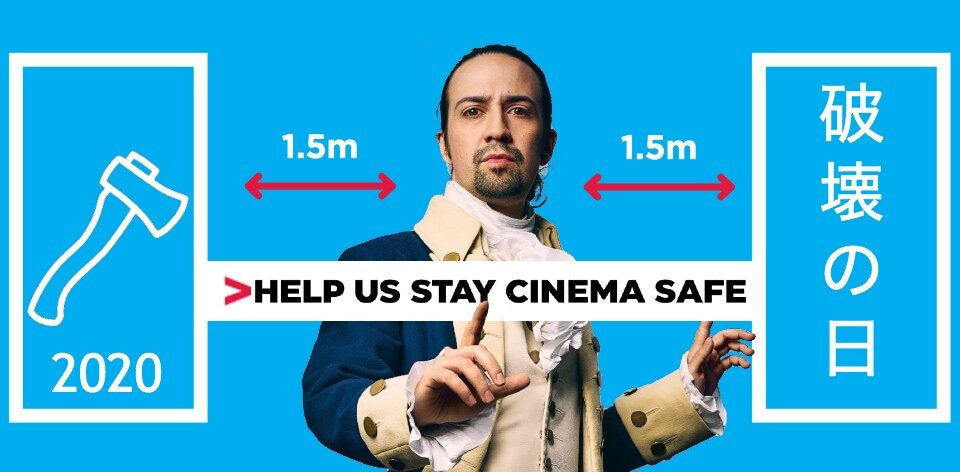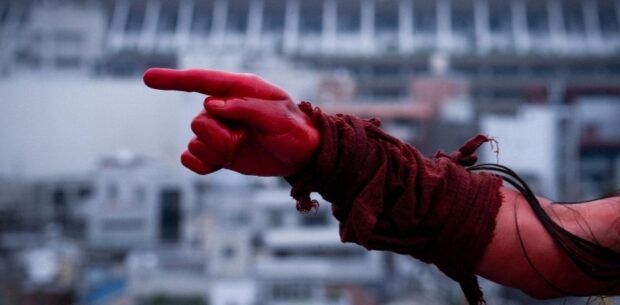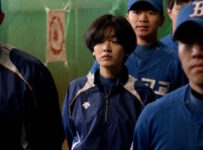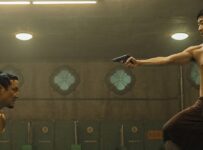Well, that was a year.
Usually at this time of December, I’m madly scrambling to squeeze in the last few ‘for your consideration’ screeners for the year. I’d be lamenting that all the award-winners won’t be out in Australia until next year. Of course, 2020 has thrown up its own unexpected tickets. Now we’re just waiting out the clock to see if we get a Groundhog Day reset at the end of the month.
The global pandemic has cost arts and media in Australia an incalculable amount of income, not to mention all the surrounding supporting businesses that rely on casual trade from a night out at the movies or theatre. Yet film has persisted.

Festivals went online – including the Sydney Film Festival, MIFF, KOFFIA and the Japanese Film Festival – and major releases went straight to digital. Universal’s Trolls World Tour was an early success, paving the way for Disney’s releases of Onward, Mulan, Hamilton and Soul to name a few. The King of Staten Island even got moved forward while Scoob!, Capone and The Lovebirds kept their release dates but shifted format.
As Australia managed to get our local transmissions under control, cinemas reopened to cautious patrons. Still, with the genie out of the bottle, one wonders if we can ever be satisfied with the way things were in the Before Times. Indeed, Warner stunned social media in December when they announced that their entire 2021 slate – including heavy-hitters Dune and the Matrix 4 – would appear in cinemas and HBO Max simultaneously.
Cinema has changed before and maybe it is time for it to change again. Even before the closures, every other think piece was lamenting the death of cinema. The best models always adapt to cater to the various markets. They will be digital, scalable, sustainable and personalised. As cinema ticket prices increase, the narrow view of a ‘true’ cinema often assumes large US/European markets. It’s also a little classist.
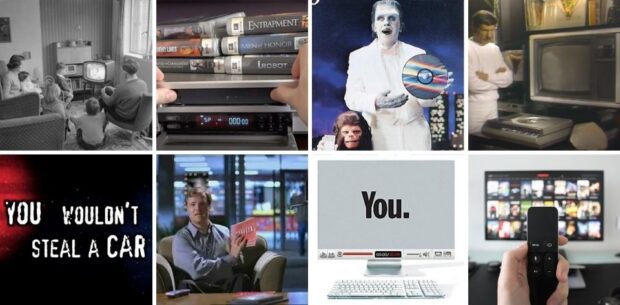
Mind you: we’ve been here before. TV was going to kill cinema. Then VHS, Laserdisc, Video CD, DVD, iTunes, piracy, the Internet, YouTube, and now subscription streaming. In May, we all reacted strongly to the rumours the George Street cinemas in Sydney would be torn down in favour of apartments.
As for me, increased digital choice led to a wider variety of decisions. Rather than simply reacting to whatever screeners I was seeing weekly, I explored Peter Bogdanovich, discovered the joys of Pre-Code Hollywood and got slightly obsessed with Hallmark Christmas films. It all cinema, and it was joyful.
In addition to the list below, favoruite first time watches from the Before Times included Pier Paolo Pasolini’s The Gospel According to St. Matthew, Ernst Lubitsch’s Trouble in Paradise, Teinosuke Kinugasa’s A Page of Madness, Tomboy, and Bogdanovich’s Paper Moon. I saw over 476 films this year (so far) over 704 hours, and I rarely stuck to a plan.
In fact, only one of the films on my top 2020 list (Mank) was seen in a cinema, and even that was from a streaming giant. 2020 may not have killed cinema, but it has forced us all to a different way of thinking. Time will tell if studios and filmmakers respond or valiantly plant the tattered flag.
Favourite Films of 2020
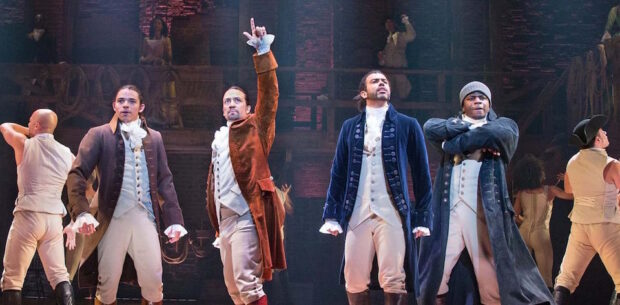
Hamilton
One of the rare films that many punters had already heard in its entirety, and perhaps seen performed on stage, long before it arrived on our screens. Filmed in 2016 and planned for a cinema release next year, the pandemic lockdowns (and a hefty payment from Disney) led to this being released on Disney+ on the July 4 weekend. It’s here at the top for two reasons. Apart from being an unabashed (and perhaps obsessive) fan of the Lin-Manuel Miranda musical, it represented more than just a large scale global release of a major film. It was a worldwide community coming together over music and theatre, recognising how lucky we are to be alive right now.
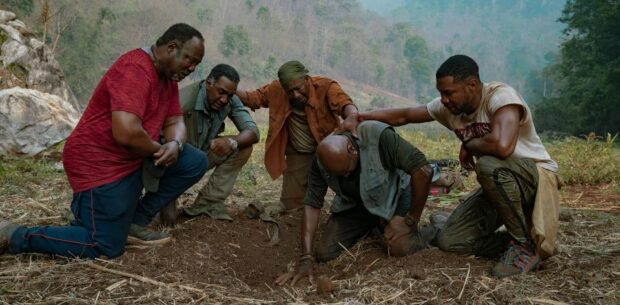
Da 5 Bloods
Spike Lee’s ambitious tale is not only an essential movie for our times, but easily one of the best films of a turbulent 2020. Back in 2018, I commented that Lee’s BlacKkKlansman was “a response to a country in crisis.” If that was the case, then this film is a dialogue with a world that has reached the same crisis point. Plus, while it wasn’t Chadwick Boseman’s final film, his spectral presence was a prophetic vision of his untimely passing only a few months later.
The Day of Destruction
If the world had not been actually plagued by a global pandemic, this would have dropped in Japanese cinemas on 24 July, the opening day of the Tokyo Olympics. If it had, some folks may have labelled it angrily seditious. In the absence of that large event, it stands as a shout of rebellion into the void of an indifferent world. Backed by Japanese death metal, it’s a frenetic mixture of sound, vision and fury that is impossible to be apathetic about. Yes, it’s all a bit shit right now, director Toshiaki Toyoda seems to be saying, but it’s up to you to do something about it.
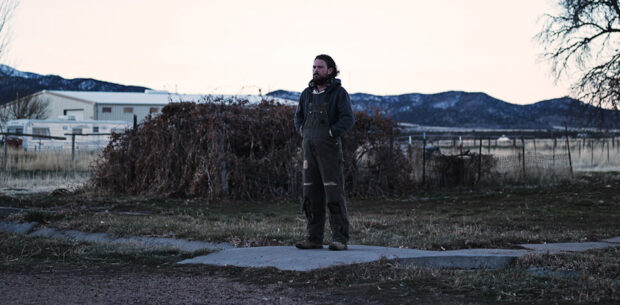
The Killing of Two Lovers
An intimate and often tense portrait of a family in trouble. A highlight of this year’s MIFF, director Robert Machoian delivers this unassuming masterwork. After a powerhouse opening, this quiet film always feels as though there’s a massive explosion just around the corner. There are a few eruptions and, thanks to Machoian’s intense long takes, we feel every single beat. Take the title as you will, but it’s actually a strangely powerful family film.
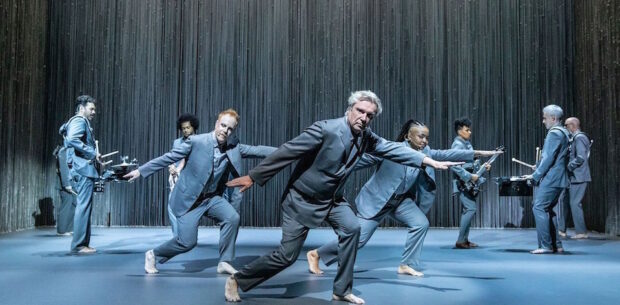
David Byrne’s American Utopia
In 1984, David Byrne, Talking Heads and Jonathan Demme elevated the idea of the concert with with Stop Making Sense. With this hybrid film, he joins forces with Spike Lee to elevate both theatre performance and modern music performance. By removing everything from stage except what “we care about,” Byrne and his amazing ensemble strip away the clutter and present new songs and old in completely original ways. At times freewheeling, and at others it’s a marching band, but it’s always tightly controlled. This is Stop Making Sense on HBO money, and that’s better than a bag of chips.
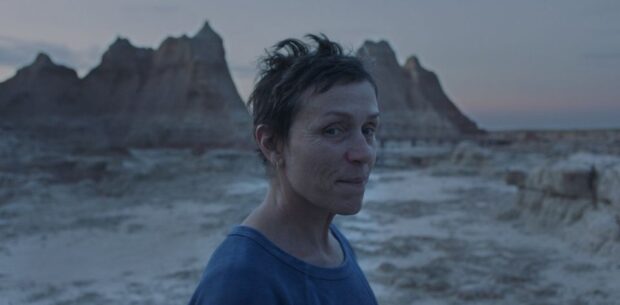
Nomadland
Chloé Zhao’s strength as a filmmaker has always been her ability to get up close and personal with people, and that’s precisely what makes NOMADLAND so impactful. A thoroughly modern film that is also timeless. Or as Fern’s sister puts it, “I think Fern is part of American tradition.” It just may not be the romantic one they’ve idealised. I was worried that some more star power would ruin Zhao’s naturalistic aesthetic, but instead the opposite happens as the intensely amazing McDormand and the quietly powerful Strathairn are absorbed by their surrounds and the real-life nomads who pepper the cast. As always, cinematographer Joshua James Richards makes the landscapes a third major character. A must-see.
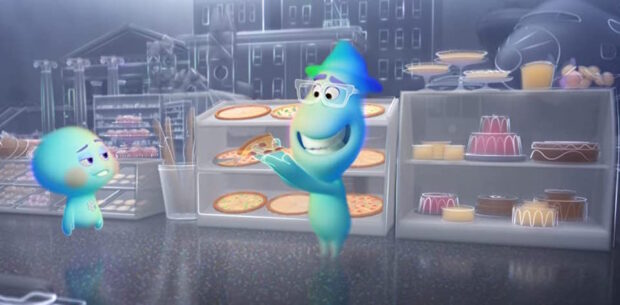
Soul
Pixar bypasses cinemas and goes straight into our hearts (and souls) with a gorgeously animated film that captures the introspection of a trouble year. Here is a film that tells us that just living life with its warts and all is something unique – even if you’re not into jazz. SOUL is a beautifully illustrated acknowledgment that failure is as much a part of living as success.
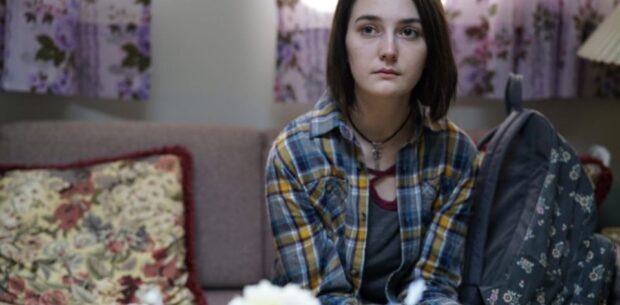
Never Rarely Sometimes Always
One of the things I most admire about Eliza Hittman’s filmmaking (It Felt Like Love, Beach Rats) is her ability to find intimate angles on her characters while staying observational and judgment free. Powerful in its simplicity, this film – about a young girl travelling to New York to undergo an abortion – should be a compulsory film for every lawmaker across the world. Scrap that: everyone should see this.
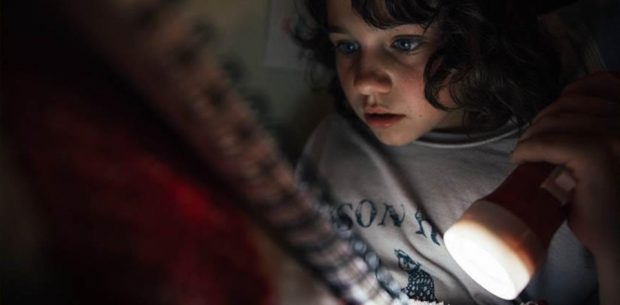
Wendy
The critical consensus has not been kind of this, but methinks time will tell. Benh Zeitlin expands on the magical realism of Beasts of the Southern Wild. Indeed, when I spoke with him back in 2012, he said his next film was “going to be another big folktale.” Eight years later he made good on this. It’s a beautifully shot piece, backed by a heartbreakingly magical score from Dan Romer, that explores the delicate line between childhood and adulthood, coping with loss and the importance of hope. You may not necessarily think you’d get all of these things out of a gritty reboot of Peter Pan, but there it is.
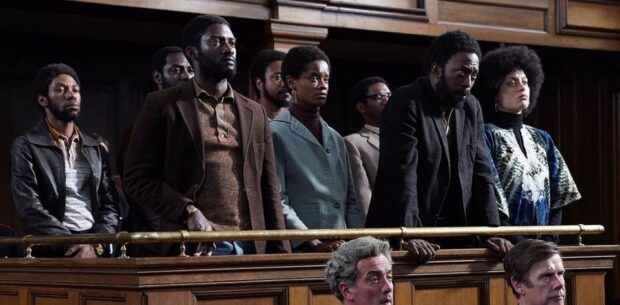
Mangrove
It speaks volumes that artist/director Steve McQueen’s film, the first in the Small Axe series for BBC (UK)/Prime Video (UK), feels so immediate and relevant in 2020. It is, after all, about the racially-motivated arrests and trial following repeated police harassment at the titular Notting Hill restaurant in 1970. Performances are exemplary, editing is tight, and the procedural nature of the courtroom keeps the narrative laser focused. Yeah, it’s going to be hard not to compare this with Aaron Sorkin’s similarly courtroom-centric Trial of the Chicago 7. Yet this just goes to show that institutionalised racism is not limited to a single decade or country. Look out for some of McQueen’s other films in this series later in the list.
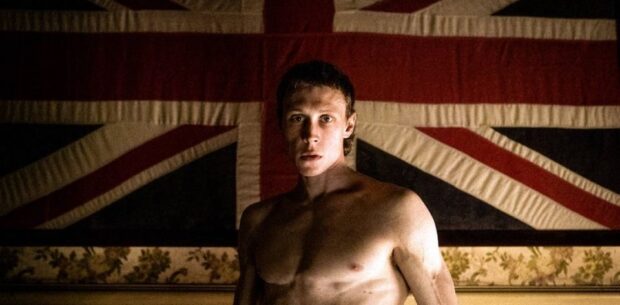
The True History of the Kelly Gang
As an Australian, we grow up with these stories with a mixture of national pride and shame. It’s like being Catholic on a federal level. So, it’s terrific to finally see a story that doesn’t play by the traditional rules. Justin Kurzel’s film is a fictionalised, and mostly beardless, adaptation of Peter Carey’s novel. At least one review described aspects of the film as “transgressive” and that’s possibly a good way of framing a film that constantly pushes the edges of historical masculinity. George MacKay and his Iggy Pop physicality is phenomenal casting. Essie Davis and Thomasin McKenzie are also standouts. Gorgeously shot, the measured pace is punctuated by extreme acts of violence and haunting imagery.
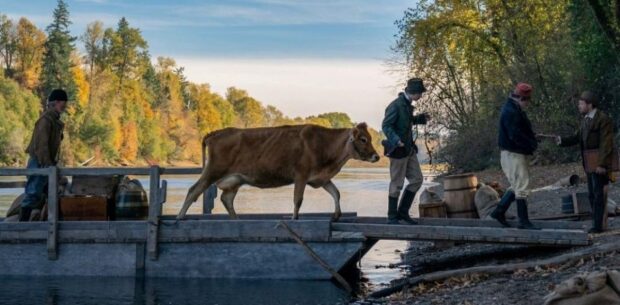
First Cow
In this udderly enchanting piece, indie filmmaker Kelly Reichardt returns to themes of bromance and natural realism without milking her recurring motifs. Indeed, it acts as a kind of companion piece to Old Joy. Where that film was a quiet study of two men taking divergent paths at the crossroads of adulthood, here those paths join up in quietly unassuming ways. Cookie and King-Lu have lengthy existential conversations in the gentle embrace of their natural surroundings, much like their counterparts Kurt and Mark did 14 years earlier (or 186 years later if you prefer).
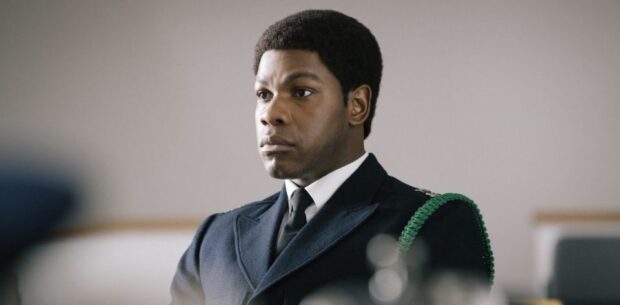
Red, White and Blue
Steve McQueen’s third Small Axe film arguably brings many of the themes of the first two films together for a laser-focused character piece. John Boyega is sensational as someone walking with a foot in each world, not entirely trusted or liked by either. As a biopic, it never feels anything less than real. Another essential movie for 2020, and one that should be seen widely.
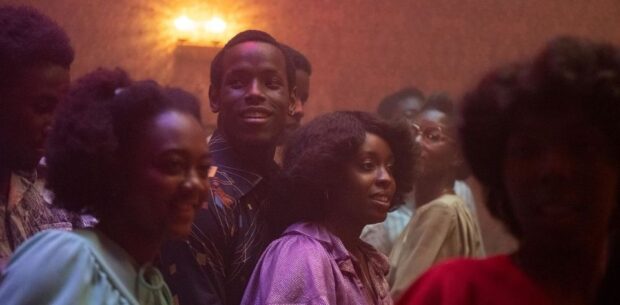
Lovers Rock
The second of the Small Axe films is hypnotic and (mostly) joyful. While it doesn’t have the courtroom platform of Mangrove, the thematic companion uses the dancefloor as its own place of defiance. When the needle drops (literally and figuratively), the mood changes and lets some of the darkness in. Or was it always there?
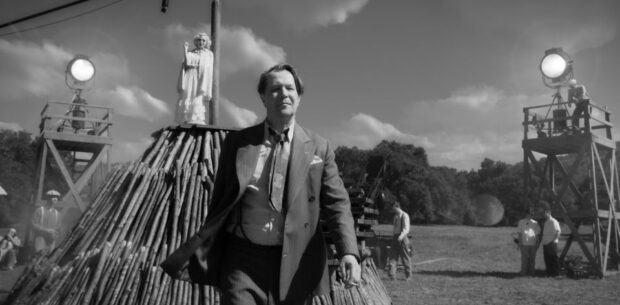
Mank
Whether Citizen Kane is still the greatest film ever made is a matter of regular debate, one I’ve engaged in from time to time. They were, like everything I’ve done, written entirely in the absence of Orson Welles. Yet almost eight decades after its release, it is unquestionably one of the most influential movies in the canon. Critic and historian Robert Carringer may have put the authorship debate to bed over 40 years ago, but thanks to David Fincher we have a lovingly detailed and vividly realised time capsule of this endlessly intriguing period.
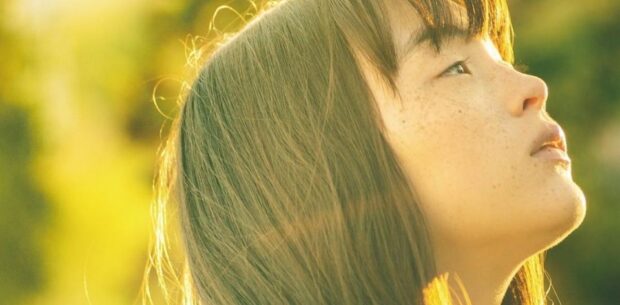
Voices in the Wind
It’s been almost a decade since the tragedy at Fukushima and surrounding areas, yet the conversation around grief and healing is only just beginning for a generation, as this film demonstrates. In a year of some excellent films on the long-lasting impact of the Tōhoku earthquake and tsunami, including the fatalistic It Feels So Good, this rumination on grief is one of the most emotional impact.
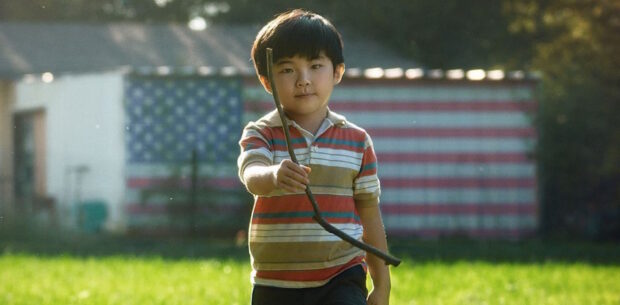
Minari
As sweeping and character driven as any dustbowl classic, this is a beautifully constructed tale of otherness, family and surviving adversity. Like the ending, it will almost crush you but you’ll come out feeling strangely enriched. Lee Isaac Chung directs Steven Yeun (Burning), who continues to make excellent post-Walking Dead choices.
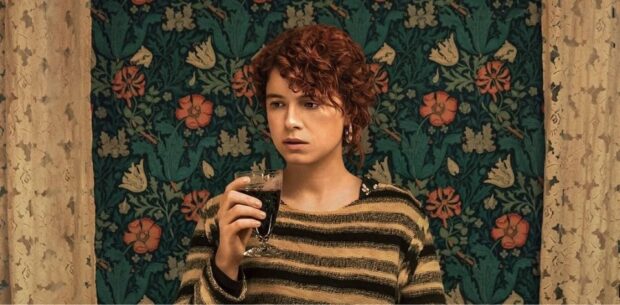
I’m Thinking of Ending Things
Normally, I can go either way with Charlie Kaufman: he’s either doing genius things with film that completely understands the medium, or trying desperately to be too clever by half. Here the balance is just about right, following the themes of his previous films while creating something that will require multiple viewings. In fact, while I normally scoff at any article titled ‘That ending explained,’ I was straight onto DuckDuckGo looking for answers at the end of this.
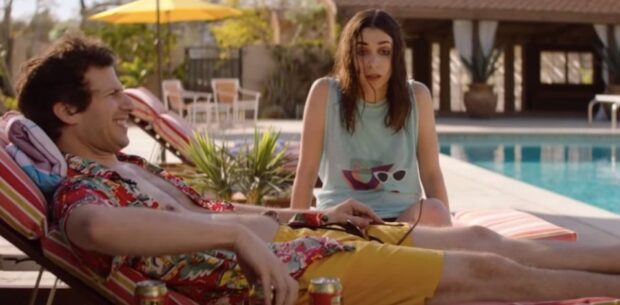
Palm Springs
If I was stuck in a time loop with a copy of a time loop comedy featuring the ultimate crossover between Lonely Island, Whiplash and How I Met Your Mother, I’d never want to get out of the pool. Yes, it’s Groundhog Day meets SNL, but somehow that’s peak 2020.
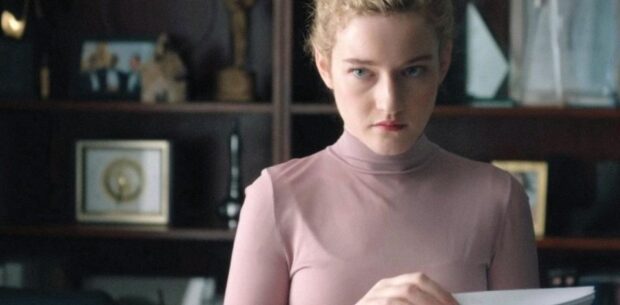
The Assistant
A fascinating and intimate portrait of life in a film production company (of ambiguous scope) from the point of view of the titular assistant. This all got a little real, having done some unpaid labour for a firm once upon a time – and that’s kind of the point. We all accept this behaviour as a matter of course as it’s part of the ‘culture’ of ‘earning your stripes.’ (Sidebar: perhaps this is my privilege speaking, but I do find it hard to believe that an HR rep in 2020 would turn a complete blind eye to a complaint in a large corporation). Regardless, terrific performance from the always great Garner and the understated vibe and minimalist approach just adds to the impact.
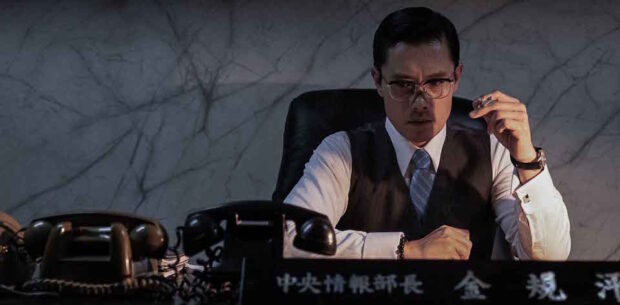
The Man Standing Next
A slickly produced capture of a moment in time that remains divisive to this day. Cast and photography are excellent. Joins A Taxi Driver, Spy Gone North and 1987: When the Day Comes in the ranks of top-notch, period political thrillers coming out of South Korea over the last few years.

Beasts Clawing at Straws
Speaking of Korean thrillers. A stylish thriller that’s as twisty as it is stabby, Kim Yong-hoon’s debut heralds a new voice to watch and possibly Korea’s answer to the Coen Brothers. Just remember: straws can kill marine life.
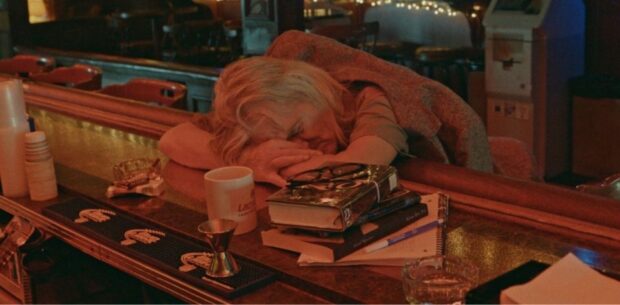
Bloody Nose, Empty Pockets
“There is nothing more boring than a guy who used to do stuff and he don’t do stuff no more because he’s in a bar.” Despite similar wisdom espoused by this and several other barflies, the Ross brothers actually prove him wrong in this completely enveloping night in a dive bar on its last legs. Freewheeling conversations and overlapping dialogue (think: beer-soaked Altman) result in equal parts profound thoughts and uncomfortable observations. Have a drink on me.
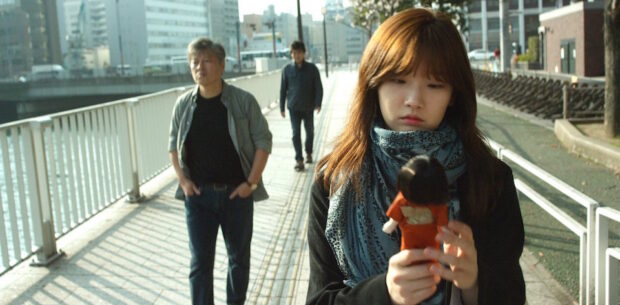
Fukuoka
While I have been shockingly slack in getting on top of Zhang Lu’s filmography, I adored A Quiet Dream a few years back and this very much felt like a continuation of his oeuvre. It’s impossible to not compare him with Hong Sang-soo (well, maybe not impossible: I’m sure I could have not typed that sentence but I did anyway), but there isn’t that sense that the other shoe is going to drop at any moment. Three excellent lead performances from the always terrific Park So-dam, Kwon Hae-hyo, and Yoon Je-moon. It’s the kind of film that could have kept going all day and you’d be cool with it. Now, to find the shortest path to the bar.
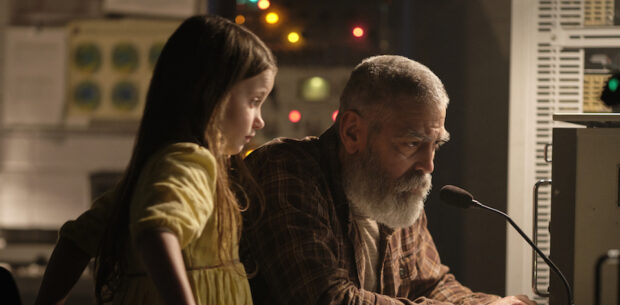
The Midnight Sky
A beautifully shot and meditative sci-fi film from George Clooney that sits at the intersection of hope and justified fear. There are elements of the denouement that will frustrate some viewers, while others may simply find the ending cold. Yet despite its post-apocalyptic backdrop and sci-fi setting, it’s also one of his most intimate character-based pieces, one that somehow perfectly hits on the isolation of 2020.
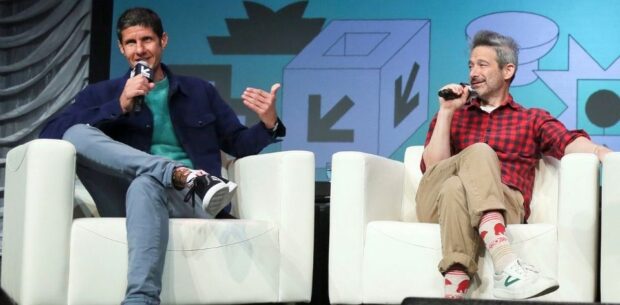
Beastie Boys Story
Yes, it’s Beasties TED Talk. Yet as an alternative to the endless talking heads documentaries, it’s a fun supplement to the Beastie Boys Book, the music videos and countless outtakes from early recordings. Can we call out the surviving Boys for back-peddling from frat antics of their early days? Maybe. Did I have a ball seeing rare footage and reminiscing about a few decades worth of fandom? Hell yes. The only caveat is that there was clearly a lot more footage shot – celebrity cameos, some on-stage performances and some casual riffing – some of which we see in the mid-credits outtakes. If there’d be a few more spots like this, rather than the polished autocue discussions, it would have been even better.
The best of the rest
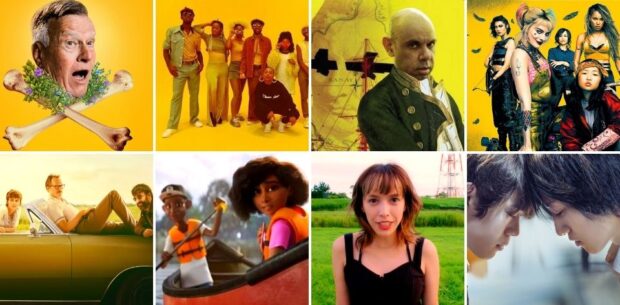
Wait, there’s more! Really, this is just an extension of the list above. because Interweb sites like this insist on ranking and ordering things.
As Asia in Focus is a huge part of this site, films like the Japanese LGBTQI+ positive HIS and QUEER JAPAN impressed this year. The prolific Sion Sono released RED POST ON ESCHER STREET, arguably his most accessible and joyfully strange film in years.
Amazon’s UNCLE FRANK is filled with some terrific performances, obviously led by Bettany in the titular role, this winds up being a something more transcendent.
Pixar released several films this year, but few were as powerful as their short LOOP. Made under the SparkShorts program, Erica Milsom’s film takes a respectful and insightful look at the world through the eyes of a non-verbal autistic person. On a technical level, the animation is sublime. Now Pixar need to do a feature that is as progressive as this.
BIRDS OF PREY became the default highest grossing superhero film of 2020, aided greatly by it being a solid and ridiculously fun outing. Almost everything else got pushed to 2021, save for New Mutants and Bloodshot. The less said there the better. Wonder Woman was a late 2020 release, simultaneously in cinemas and digital, but one imagines its January numbers will be huge.
From documentary land, you couldn’t find three films more different than those in 2020. DICK JOHNSON IS DEAD is a remarkable blend of fact and fantasy that deals with the long goodbye of dementia. DARK CITY BENEATH THE BEAT is a visual poem dedicated to the dance scene of Baltimore. LOOKY LOOKY, HERE COMES COOKY is an often comedic look at Australia’s difficult relationship with our colonial legacy, asking us if we’re part of the problem or the solution.
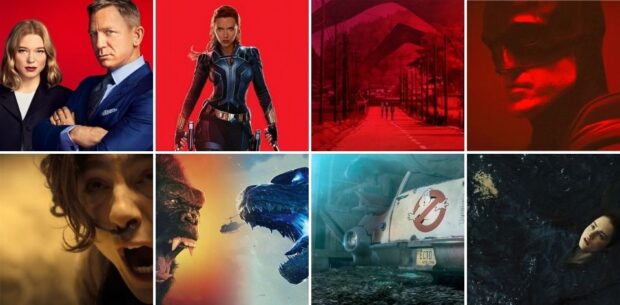
Looking ahead to 2021
At the time of writing, Australia’s Covid numbers are looking (mostly) positive – but the rest of the world is a little more uncertain. For the moment, studios have optimistically set dates for 2021 and beyond.
You can almost directly transplant my Most anticipated films of 2020 to next year. Specifically, 007’s No Time to Die, Marvel’s Black Widow and The Eternals, Robert Pattinson as The Batman, the new crack at Dune, monster mash-up Godzilla Vs. Kong, and Sundance debuting Mayday.
We may even get to see the long-delayed Evangelion 3.0 + 1.0: Thrice Upon a Time in an honest to goodness cinema, assuming the Fourth Impact doesn’t happen between now and then. I’d also be lying if I wasn’t a little excited at seeing proton packs back on screen with Ghostbusters: Afterlife.
Whatever happens next year, you can count on two things. We’ll still be able to see movies somewhere, and I’ll occasionally write about them here.

